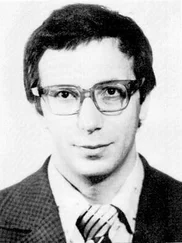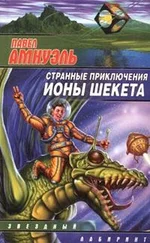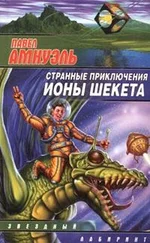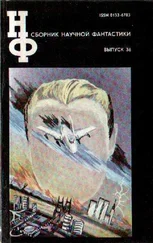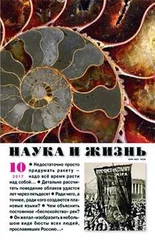And Max?
Max lay motionless on the road. He looked up at the sky and his pupils were enlarged like he was tripping on molly. All he could get out of his mouth was “Whoa…” like he was blazed or something. He just kept lying there saying “Whoa…” very quietly, every twenty seconds, until the ambulance arrived. They put him on a stretcher, but as they were about to lift it into the ambulance, he sat up and said calmly, “No need. Thanks. I’m fine.”
Max ran his hand over the doctor’s body, and the ugly psoriasis all over the doctor’s neck disappeared. Then he tapped his fingers on the paramedic’s throat three times and cured the stutter he’d had since age six.
Max picked up his bag, which had been thrown to the sidewalk, and said in a loud, clear voice, “I’m going home, guys.” And that’s when things got crazy. Mor, the hot chick from the Pajero (she even had a hot chick’s name) said, “I’m coming with you wherever you go.” Azulay, the contractor (he even had a contractor’s name), said, “Me too. Wherever you go.” They both forgot how they’d tried to claw each other’s eyes out only two minutes ago. Tony, the donkey said, “Anywhere with you. Through fire and waaaaater.” His voice came out a little brayish because he wasn’t used to talking yet. (Later, when he became the movement’s spokesperson, Tony would sit on the balcony with me and say, “Believe me, Ido, everyone’s an ass. But at least this ass knows what he’s talking about.”) Ahmed, who was a little confused, given Tony’s condition, said, “I’m coming too. For sure!” Because he didn’t want to be different from everyone, and also because without Tony he had nowhere to go to anyway.
And then they all started walking, single file, toward our place.
I was in the toilet with a lit joint between my lips when Max and his disciples walked in. It was my fourth for that day. Life looked sort of melted down, a bit rounded at the edges, and it made no sense to get mad about anything. I was high as a kite.
“Hi Maxi,” I said to him, “want a hit?” I offered him the jay, burning side up to keep it from dropping. “No thanks,” said Max—and that was the first time ever I’ve heard Max say no to dope. “I’ve changed, Ido,” he said. “I’m not the same Max. I’m a saintly person now.” And it was true, something about Max was different: he opened his eyes, and there was fire in his pupils. His eyes sparkled, as if he’d had two little lamps transplanted there.
Next morning I made a definitely final desperate attempt to get Osher back to me. I called her and heard in her voice that she was not at all happy to hear from me. She sounded tired on the phone. I insisted, until she agreed to meet with me at lunchtime in a café downtown. She actually suggested Gross’s, but I explained I wasn’t working there anymore.
Then I went to select a handgun for myself. They already know me at the Recoil shop in the mall. I’ve been there three times looking at guns, but never bought one, ’cause until that day I didn’t really need a handgun.
The salesperson was called Ozz. Before I met Ozz, I’d thought it was a name fit for a Rottweiler, but it turns out there’re all kinds of name-giving parents in this world. He opened the glass cabinet where all the handguns were locked and explained each one of them. I kept nodding my head, “yes, yes,” and even asked a few questions, just to let him know I was really interested and also that I understand such things. Every once in a while I went so far as to hold a gun in my hand, to feel its heft and see if it was well-balanced. This was just for show. I knew exactly what I wanted. I waited for him to get to the chrome-plated Jericho Magnum, then I took it in my hand and caressed it lovingly. It had a good smell of gun oil and metal. When it comes to death, only Made in Israel will do. The big, heavy gun was a perfect match for my hand, precisely fitting all its curves and folds, sending silent vibrations up my arm all the way to the elbow, and then on to my chest and spinal column. Then I chose rounds—hollow point, of course. I looked at the silvery lead ball that I could see through the slits in the copper jacket in the bullet I was holding in my hand. When this round hits flesh, the copper around the lead opens up, becoming a little rosebud spinning at a terrific speed and leaving a wound you could throw a tennis ball through, never touching the edges.
If it’s got to end, I was thinking, I want to make sure it really ends. I didn’t want to miss accidentally and then lie for ten years in the Levinstein Rehabilitation Center staring at the ceiling and waiting for the nurse to come and feed me porridge with a teaspoon.
I ordered twenty rounds. They won’t sell singles. I’d already asked. I gave Ozz a check for the down payment, and we agreed I’d give him the rest in twenty-six days, when I’d come to collect the gun, with all the paperwork done in the meantime.
I even had time to visit the Ministry of the Interior and fill in a request for purchase of a firearm. On my way to the coffee shop I lit a joint just to pull myself together. I got to The Other Café ten minutes ahead of time, lit a cigarette, and asked for a beer. I sat down to wait for Osher. Osher, as per usual, was late.
It’s not so good, mixing alcohol with weed. When she arrived I got up to hug her, but I never saw this chair. Stumbled against it and fell right between Osher’s sweet-smelling tits, which were projecting way out because of the tight black woolen blouse she was wearing. Usually, Osher hates it when I mix dope and alcohol and lose it. Last time it had happened, we were still an item. She’d cried and screamed at me for ruining myself and what a shame it was to see an intelligent guy like myself wasting himself like that. This time, Osher didn’t get mad at all. She just helped me sit down again. Then she seated herself opposite me, looking at me as if she’d never cared. She took one of my cigarettes, lit it, and scrunched her face with the first drag. “Phooey,” she said, looking at me, pouting her lips and blowing a thin jet of smoke in my direction. “I can’t figure out how you people can smoke this shit.”
“Give us E for effort,” I said, smiling at her. Osher smiled back—and for a brief moment it was like old times, and my stomach got all warm inside. But just for a moment.
“I got a gun today, Osher,” I told her. “Jericho Magnum with dum-dum bullets, like I’ve always wanted.”
“You’re mental,” she said. “What do you need a gun for, anyway?”
“To blow my brain and get out of here,” I said, and saw her cringing in her seat. Then, suddenly, there was a tired look in her eyes, like she was seventy years old. She told me I’d come looking for help at the wrong place, because she was all empty inside and no longer had anything for me. She took my hand in hers and looked me in the eyes: “Believe me, Ido, I’m not trying to lie to you or something. I can’t help you. I’m really done.” Tears came out, smearing this black stuff she puts around her eyes. “I don’t know how to explain this to you,” she said, “but something that’d always been there inside and I’d always known would be there the next day—it’s gone suddenly, all at once. Now I must search for something else. Everyone’s searching. I’m not the only one who’s had it disappear.”
I’ve never heard Osher talk like that. But she got back together real quick, saying, “Sorry, I don’t know what I’m going through. You don’t need my bullshit on top of everything else. I’m terribly sorry.”
Then there was nothing left to say. We sat facing each other silently for maybe ten minutes. Osher smoked another one of my cigarettes, with obvious disgust, and finally got up, gave me a twisted smile, the sort that comes on by mistake, and left without saying goodbye. I walked home. Going slowly, in no hurry to get anywhere, dragging my feet, quiet and despondent. An exhausting sense of defeat spread inside me. I let my long legs carry me. They were up to the job, making long strides, rapidly swallowing those Tel Aviv streets. I gave myself up to the feeling of striding, forgetting myself.
Читать дальше


